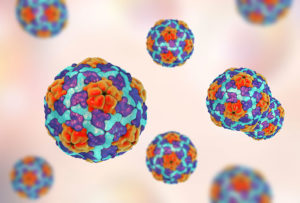what is a communicable disease?
Communicable disease is any infectious disease that can be transmitted from person to person, animal to person, or animal to animal. The goal of the Health Department is to stop the spread of these infections through public education, disease surveillance, and implementation of control measures. Information on specific disease can be found at the Centers for Disease Control website.
what are the different types of communicable diseases?
 monkeypox (Mpx) virus:
monkeypox (Mpx) virus:
What is MPX? Human monkeypox is a rare but serious illness caused by infection with the monkeypox virus, which can infect humans and other animals, such as monkeys and rodents.
How did MPX start? The human monkeypox virus belongs to the genus Orthopoxvirus. The Orthopoxvirus genus also includes variola virus (which causes smallpox), vaccinia virus (used in the smallpox vaccine), and cowpox virus. Historically, most human cases of monkeypox have been identified in Central and West Africa. Rarely, human monkeypox cases have been identified outside of Central or West Africa, though many cases reported links to those regions, either through travel or exposure to humans or animals that had been infected in those areas. In May 2022, several clusters of human monkeypox cases were reported in countries that don’t normally report human monkeypox, including the United States. It’s not clear how the people were exposed to monkeypox, but early data suggest that gay, bisexual, and other men who have sex with men make up a high number of cases. However, anyone who has been in close contact with someone who has monkeypox is at risk, regardless of gender or sexual orientation.
What are common symptoms?
Symptoms of monkeypox can include:
- Fever
- Headache
- Muscle aches and backache
- A rash that can look like pimples or blisters that appears on the face, inside the mouth, and on other parts of the body, like the hands, feet, chest, genitals, or anus.
- Swollen lymph nodes
- Chills
- Exhaustion
Where can I learn more about MPX? Visit the Maryland Department of Health website here or the Centers for Disease Control and Prevention website here.
novel coronavirus (covid-19):

What is COVID-19? The novel-coronavirus is a new respiratory disease.
How did COVID-19 start? The outbreak began in China is caused by a virus known as the 2019 Novel Coronavirus. (2019 nCoV).
What are common symptoms? Symptoms include mild to severe respiratory illness with a fever, cough, and difficulty breathing.
Where can I learn more about COVID-19? Visit our Covid-19 page here.
foodborne illness
What is foodborne illness? Foodborne illness is caused by consuming contaminated foods or beverages. Many different disease-causing microbes or pathogens can contaminate foods.
What are the symptoms of a foodborne illness? Common symptoms of foodborne illness are diarrhea and/or vomiting, typically lasting 1 to 7 days. Other symptoms include abdominal cramps, nausea, fever, joint/back aches, and fatigue.
How does the health department investigate cases of foodborne illness? All cases of reported foodborne illness are investigated by the Health Department. A thorough food history is completed to determine the cause. The nursing department works closely with our Environmental Health staff to track the source of infection and implement control measures to stop the spread of the infection.
hepatitis a:
What is Hepatitis A? Hepatitis A is a contagious liver infection caused by the hepatitis A virus. The illness can be mild or quite severe.
Where can I find more information? To find out how it spreads, what are the symptoms and what to do if you are sick, click here.
What can I do to protect myself? Get vaccinated! Vaccinations are available for those over age 19 who qualify. To ask questions or schedule a free appointment call 443.523.1700.
hepatitis c:
What is Hepatitis C? Hepatitis C is a serious liver disease that results from infection with the Hepatitis C virus.
Who is at highest risk? Hepatitis C is know as a silent epidemic because most people with Hepatitis C do not know they are infected. Baby boomers, those born between 1945 – 1965, are at a higher risk and likely to have become infected during the 1970s and 1980s.
Where can I get more information? For details on symptoms, transmission, and treatment, go to the cdc.gov website.
What can I do to protect myself? Get tested! The health department offers free testing. It is a simple one drop of blood test and can be done quickly and at no cost. Call 443.523.1700 for an appointment today!
tuberculosis: 
What is Tuberculosis? M. Tuberculosis is a highly contagious bacteria that can cause infection and disease in any part of the human body.
How is it spread? When tuberculosis attacks the lungs, it can be spread when the person coughs, sneezes or sings.
How does the health department manage TB? The top priority of the Health Department is to assure that a person with active TB is completely treated by providing Directly Observed Therapy at no charge. Next is the prompt identification and screening of TB contacts. Somerset County residents who are infected with Latent TB Infection are offered preventative therapy at no charge in an effort to prevent active disease in the future.
hIV/aids:
HIV/AIDS Programs
sexually transmitted infections:
SEXUALLY TRANSMITTED INFECTIONS SCREENING & TREATMENT
A free clinic is scheduled one day per week to provide clinician evaluation and treatment. Patients are seen on an appointment basis.



